Keywords
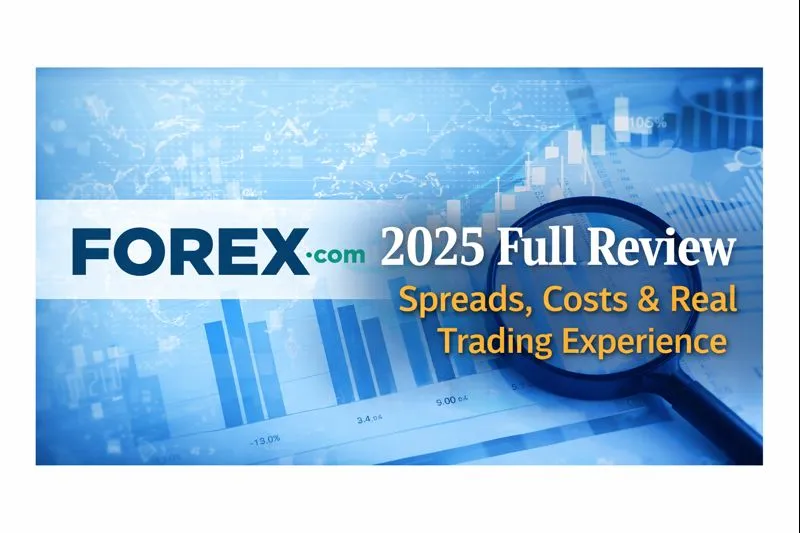
FOREX.com 2025 Full Review Report: Spreads, Fees, Trading Platform, and Real Trading Experience
FOREX.com is one of the world's most recognized retail forex brokers, known for its strong regulatory background, transparent pricing structure, and professional-grade trading platform. In 2025, competition among forex brokers intensified, particularly in terms of spreads, order execution speed, and platform functionality. FOREX.com continues to position itself as a platform primarily geared towards disciplined and serious traders, rather than a broker that simply relies on bonuses to attract novice traders.
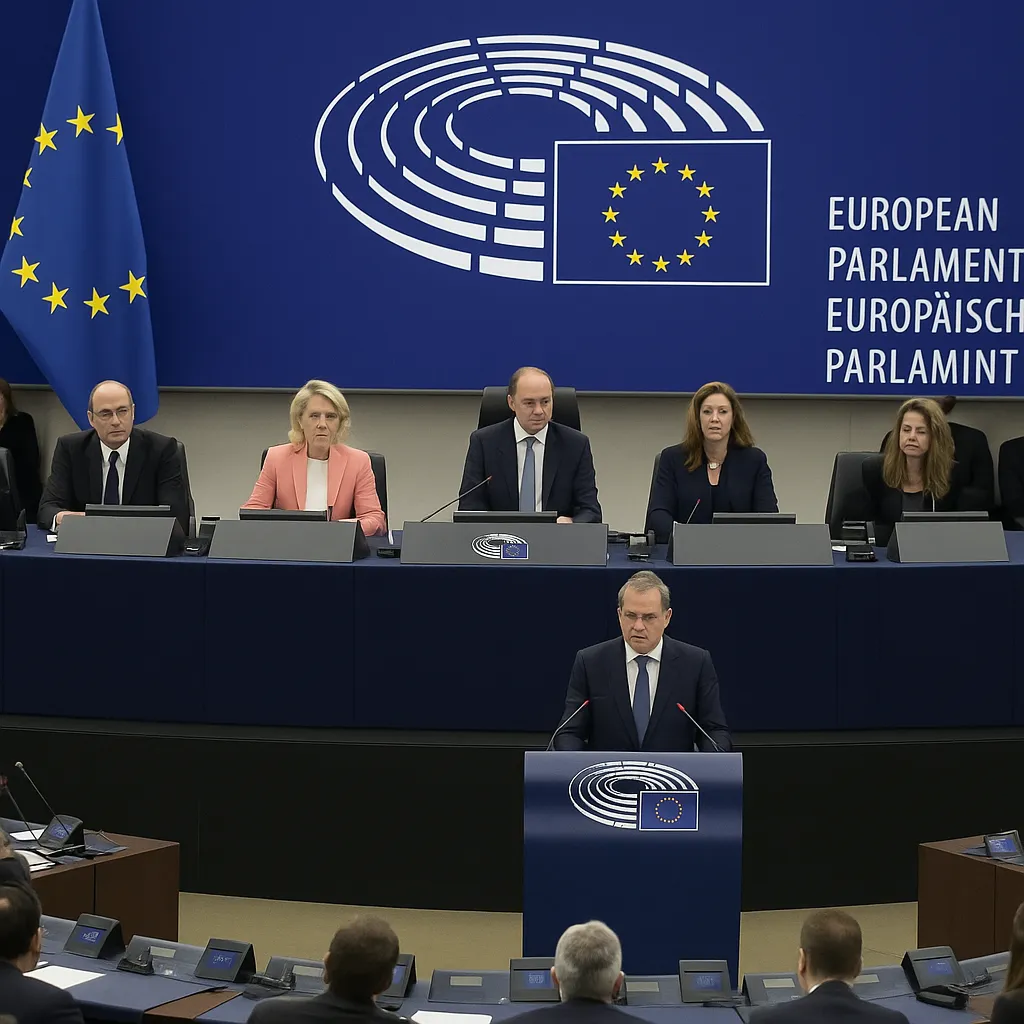
The European Parliament formally adopted the implementation rules for the Crypto Asset Markets Act (MiCA) | The world's most systematic crypto regulatory framework is now in place.
The European Parliament has formally adopted the implementing rules of the Crypto Asset Markets Act (MiCA), establishing the world's first comprehensive regulatory system covering cryptocurrencies, stablecoins, exchanges, and custodians. The new regulations lay the institutional foundation for digital finance in Europe, marking the beginning of a "rule-based era" for the global crypto market.

Japan's Financial Services Agency approves first bank-issued stablecoin project | Traditional finance officially enters the digital currency system
Japan's Financial Services Agency (FSA) has approved the JPY Token (JPYT), a fiat-backed stablecoin issued by Sumitomo Mitsui Trust Bank, marking Japan as the first major economy in Asia to allow banks to issue stablecoins. The project is pegged 1:1 to the Japanese yen and is fully regulated by the FSA, signifying the traditional banking system's full entry into the digital currency era.
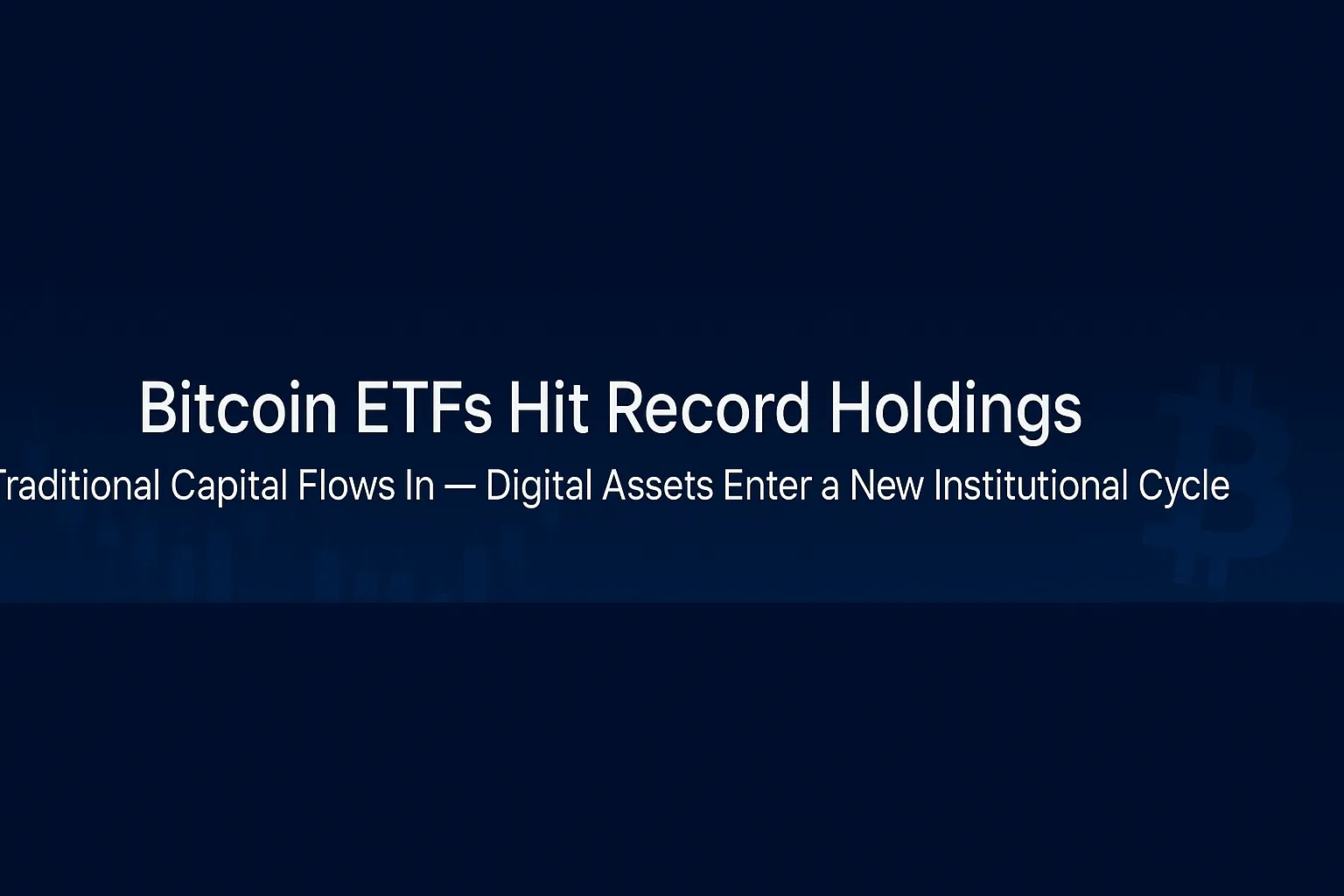
Bitcoin ETF Institutional Holdings Hit Record High | Traditional Funds Enter the Market in Full Force, Digital Assets Enter a New Cycle of Institutionalization
The latest quarterly data shows that holdings in US Bitcoin spot ETFs have reached a record high, with institutional investors holding over 1.3 million BTC. Traditional asset management giants such as BlackRock and Fidelity have become major buyers, marking a shift in crypto assets from retail speculation to institutional allocation, and ushering in a new institutionalized phase for global digital finance.
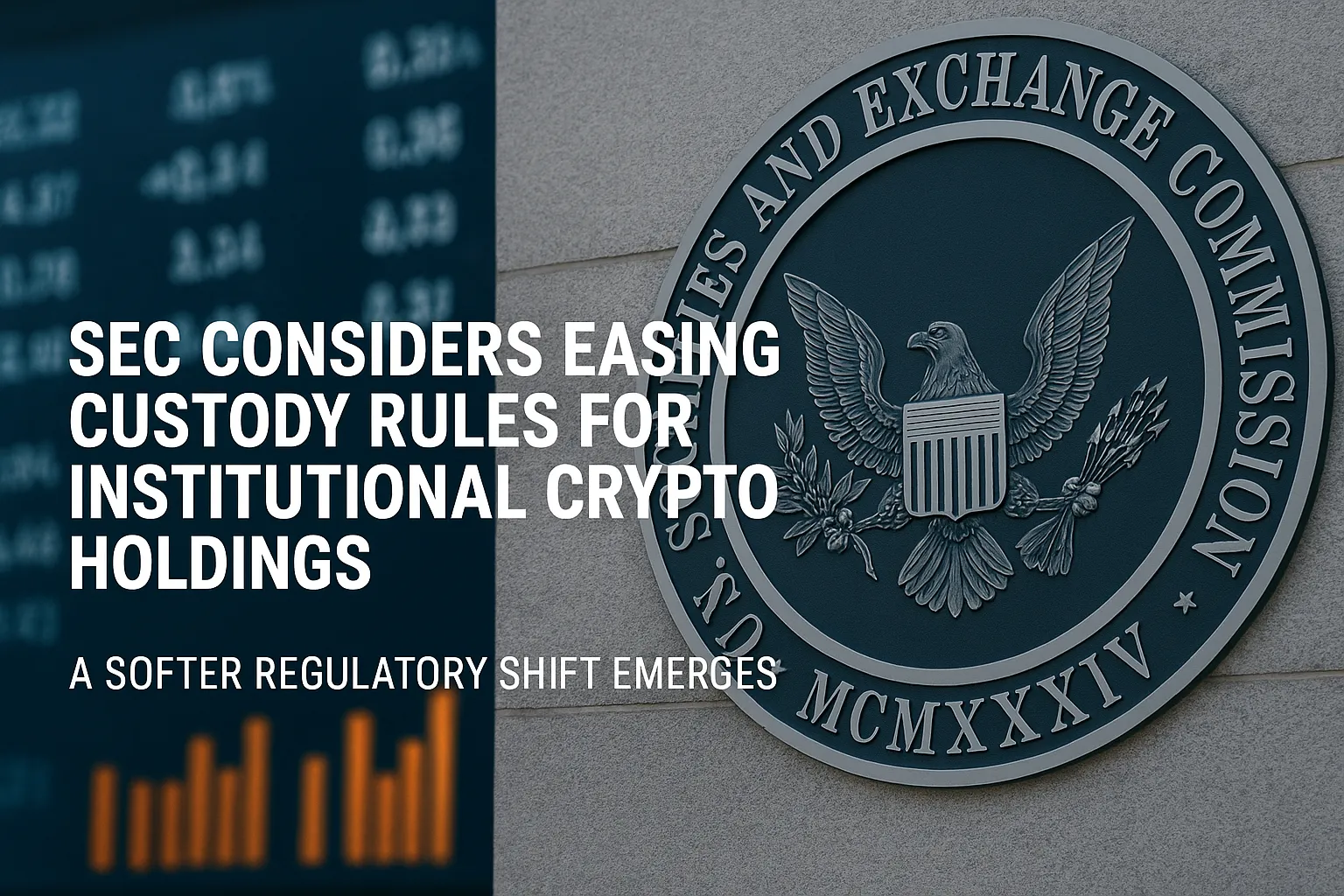
The US SEC is considering relaxing standards for institutional crypto asset custody; disclosure requirements may be simplified, and regulatory attitude is showing a mild shift.
The U.S. Securities and Exchange Commission (SEC) is considering relaxing disclosure and custody standards for institutional investors holding crypto assets, signifying a shift in regulatory attitude from "restriction" to "guidance." The new proposal would allow non-bank custodians to participate and extend disclosure periods, pushing the U.S. digital asset market towards institutionalization and transparency.

The Hong Kong Monetary Authority (HKMA) and the Monetary Authority of Singapore (MAS) jointly launched a cross-border stablecoin clearing trial, marking a substantial step forward in Asia's digital financial connectivity.
The Hong Kong Monetary Authority (HKMA) and the Monetary Authority of Singapore (MAS) have jointly launched a "Cross-border Stablecoin Clearing Pilot," aiming to build Asia's first regulated digital currency interoperability network. This project aims to reduce cross-border payment costs and improve settlement efficiency through blockchain technology, and to establish regional compliance standards, laying the foundation for digital financial integration in Asia.
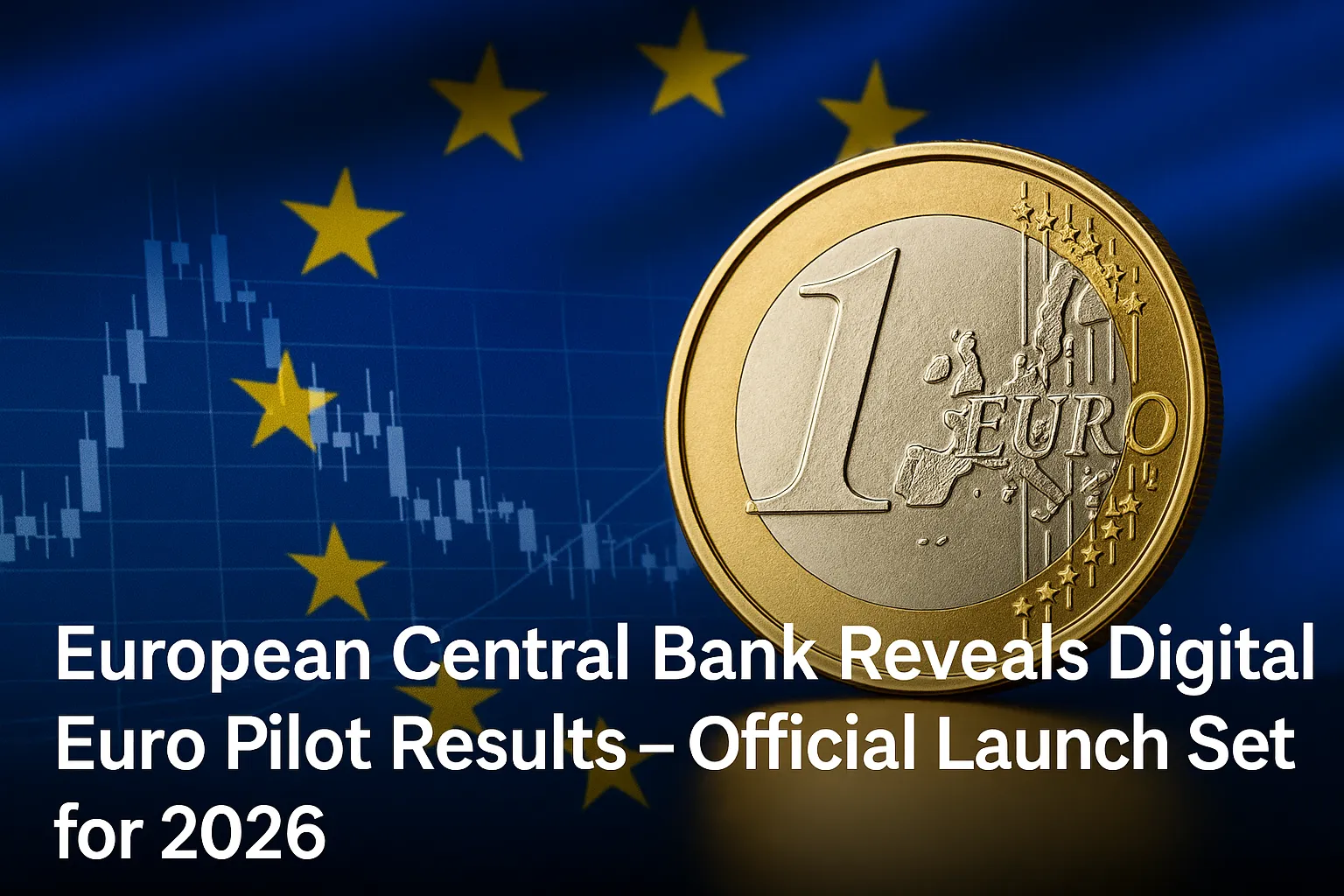
The European Central Bank releases results of its digital euro pilot program; with plans for a full launch in 2026, Europe's digital financial ecosystem is rapidly taking shape.
I. Introduction: Europe's Digital Currency Enters Substantive Phase The European Central Bank (ECB) officially released the full assessment results of the Digital Euro pilot phase at the end of October 2025. The report shows that after two years of feasibility verification and small-scale user trials, the Digital Euro project has met the technical requirements for implementation and plans to launch its first phase of formal issuance in 2026. This is a historic step for Europe in the digital currency system. Unlike the decentralized concept of cryptocurrencies, the Digital Euro is directly issued by the central bank and anchored to the fiat currency euro, aiming to provide a traceable, secure, and low-cost form of digital payment, ensuring the euro's dominant position in the global digital economy. ECB President Christine Lagarde stated at the press conference that the Digital Euro is not a "replacement of cash," but rather "providing a second layer of infrastructure for the payment system in the digital age," emphasizing that its core objective is to maintain the eurozone's monetary sovereignty and financial stability. II. Project Review: Core Achievements of Two Years of Trial Since entering the testing phase in 2023, the Digital Euro project has undergone three rounds of independent trials and multinational collaborations. This report summarizes the main achievements and experiences: (1) Cross-border payment efficiency verification In tests within the Eurozone, the settlement time for digital euro transactions was stable within 0.8 seconds, far lower than the average of 10 seconds for the traditional SEPA network. Cross-border transaction costs were reduced by about 60% compared to traditional bank remittances. (2) Privacy and compliance mechanism dual verification The European Central Bank adopted a "two-tier identity architecture": Tier 1 banks verify customer identity (KYC); Tier 2 systems store encrypted transaction records to prevent user privacy leaks. This architecture ensures that user privacy and anti-money laundering compliance go hand in hand, becoming an important reference template for the design of global central bank digital currencies (CBDCs). (3) Scalability and energy efficiency The report points out that the digital euro system is built on a permissioned distributed ledger (DLT), with an average annual energy consumption of about 1/50th that of Ethereum, which is sufficient to meet the EU's green transition goals. (4) Public acceptance Pilot surveys covered major member states such as Germany, France, Spain, and Italy, with a total of 450,000 users participating in the tests. 71% of respondents indicated they were "willing to use the digital euro in daily payments," primarily citing reasons such as instant transfers, transaction transparency, and the ability to operate without a bank card. III. Strategic Goals: "Euro Sovereignty" in the Digital Currency Era. European Commission Vice-President Dombowski pointed out at a press conference that the launch of the digital euro has three strategic implications: Strengthening Monetary Sovereignty: With the increasing use of US dollar stablecoins and Bitcoin in cross-border payments, the EU is concerned about the weakening of its currency's share in the global digital settlement system. The digital euro will provide "a clearing alternative dominated by the Eurozone." Enhancing the Independence of the Payment System: Currently, 70% of electronic payments in the EU still rely on infrastructure from US companies such as Visa and Mastercard. The goal of the digital euro is to create a European payment channel independent of third parties, enhancing financial security. Promoting Unified Financial Data Standards: The digital euro will be aligned with the EU's "Open Finance Framework," achieving interconnectivity among banks, payment institutions, and government services. Experts believe this plan is not only a monetary innovation but also an extension of geoeconomic competition. Europe intends to reshape its voice in the global financial system through digital currency. IV. Technical Implementation: The multi-tiered digital euro structure led by the central bank adopts a three-tier system of "central bank + commercial banks + technology service providers": Central Bank Layer: Responsible for issuance, auditing, and circulation monitoring; Commercial Bank Layer: Responsible for account opening, user management, and compliance operations; Technology Layer: Supported by underlying ledgers, privacy encryption, and transaction interfaces provided by multiple European technology companies and research institutions. It is understood that the prototype of this system was jointly developed by the European Payments Initiative (EPI), Deutsche Telekom, and the Italian banking consortium Nexi. Technically, it employs a multi-signature mechanism and distributed verification nodes, balancing security and scalability. ECB official documents indicate that the system can handle 35,000 transactions per second (TPS) under peak conditions, sufficient to cover the retail payment needs across Europe. V. Feedback from Financial Institutions: Banks' attitudes towards the digital euro are polarized, reflecting both concerns and expectations. On the one hand, large banks worry that direct central bank intervention in retail payments will weaken the position of commercial banks in the deposit and clearing system; on the other hand, they also believe that this brings new opportunities for fintech cooperation. BNP Paribas analysts suggest that after the launch of the digital euro, banks may transform into "digital wallet service providers," maintaining profitability by offering value-added services such as credit, investment, and insurance. Deutsche Bank of Germany recommends a "deposit cap mechanism" in the design to prevent users from transferring all their bank deposits to the central bank's digital wallet, impacting liquidity. Meanwhile, European payment companies such as Adyen and Worldline welcome the move, believing it will "bring long-term technological dividends to cross-border payments" and encourage EU SMEs to lower the barriers to receiving payments. VI. Market and Public Reaction: Trust and Expectations Coexist. Since the release of the digital euro report, European public opinion has generally focused on issues of "privacy, control, and technological security." Some civic groups worry that the central bank's ability to track transaction records in real time could lead to the misuse of personal data. In response, the European Central Bank emphasized privacy protection mechanisms in its report—transaction records will only retain encrypted summaries, without user identity information, and access will be strictly controlled. Furthermore, all transaction data will be stored on local European servers and will not be transferred through third countries. In the market, Eurozone payment technology stocks generally rose, reflecting the capital market's optimism about the concept of digital currency infrastructure. Shares of blockchain technology companies Bitfutura and Ledger Europe rose 8.2% and 6.5% respectively after the announcement, reflecting investors' positive expectations for the sector's growth potential. VII. International Comparison: Europe's "Cautious Lead" Compared to China's digital yuan, the Bahamas' Sand Dollar, and the still-undetermined digital dollar plan in the United States, the European Central Bank's digital euro project appears more "prudent and pragmatic." Its focus is not on racing ahead, but on ensuring unified technical standards and a sound legal framework. The European Central Bank has clearly stated that the digital euro will not be in opposition to the commercial banking system, but rather will have a "coexisting and complementary" relationship. Furthermore, the European Central Bank is also conducting joint research with institutions such as the Bank of Canada, the Bank of Japan, and the Monetary Authority of Singapore (MAS) to explore cross-border clearing and interoperability standards. This means that the digital euro may become one of the core nodes of the global central bank digital currency network in the future. VIII. Risks and Challenges: Legal, Privacy, and Political Differences Despite the overall positive direction, the digital euro still faces multiple challenges. Legally: Differences exist among EU countries regarding data sovereignty and privacy protection laws, requiring unified legislation. Technical Aspects: The security, quantum attack resistance, and offline payment scenarios of distributed ledgers still require further improvement. Political Aspects: Differing views on the necessity of digital currency between Nordic and Southern European countries may affect the pace of implementation. Public Trust: Ensuring users believe that "central banks will not monitor personal cash flows" will be key to success. The European Central Bank plans to complete legislative coordination by the end of 2025 and officially launch it for public use in 2026. At that time, the digital euro may first be launched in Germany, France, Italy, and Spain. IX. Economic Significance: Digital Currency Reshapes the Eurozone Financial System. The digital euro is not only a payment tool but also an opportunity to restructure the Eurozone's internal financial system. It will provide EU SMEs with lower-cost financing channels; provide instant payment methods for cross-border workers and freelancers; and provide governments with the infrastructure for real-time tax collection and subsidy disbursement. Economists believe that the launch of the digital euro may increase the internationalization of the euro in the long term and weaken the dollar's monopoly in the global settlement system. At the same time, it will also promote the formation of a unified digital identity system and regulatory technology ecosystem in Europe. X. Conclusion: The Digital Euro, Europe's "Financial Revival Plan" From initial conceptual research to current pilot results, the digital euro has moved from theory to reality. This is not only technological innovation but also a proactive move by Europe in the global financial competition landscape. Faced with the traditional dollar-dominated system and the rapid advancement of China's digital yuan, the European Central Bank hopes to build a new financial order centered on "transparency, compliance, and security" through the digital euro. The speed of the digital euro's implementation over the next two years will determine whether Europe can redefine its financial discourse power in the era of digital currency. As Lagarde summarized at the press conference: "The digital euro is not a future option, but an inevitability for Europe now."
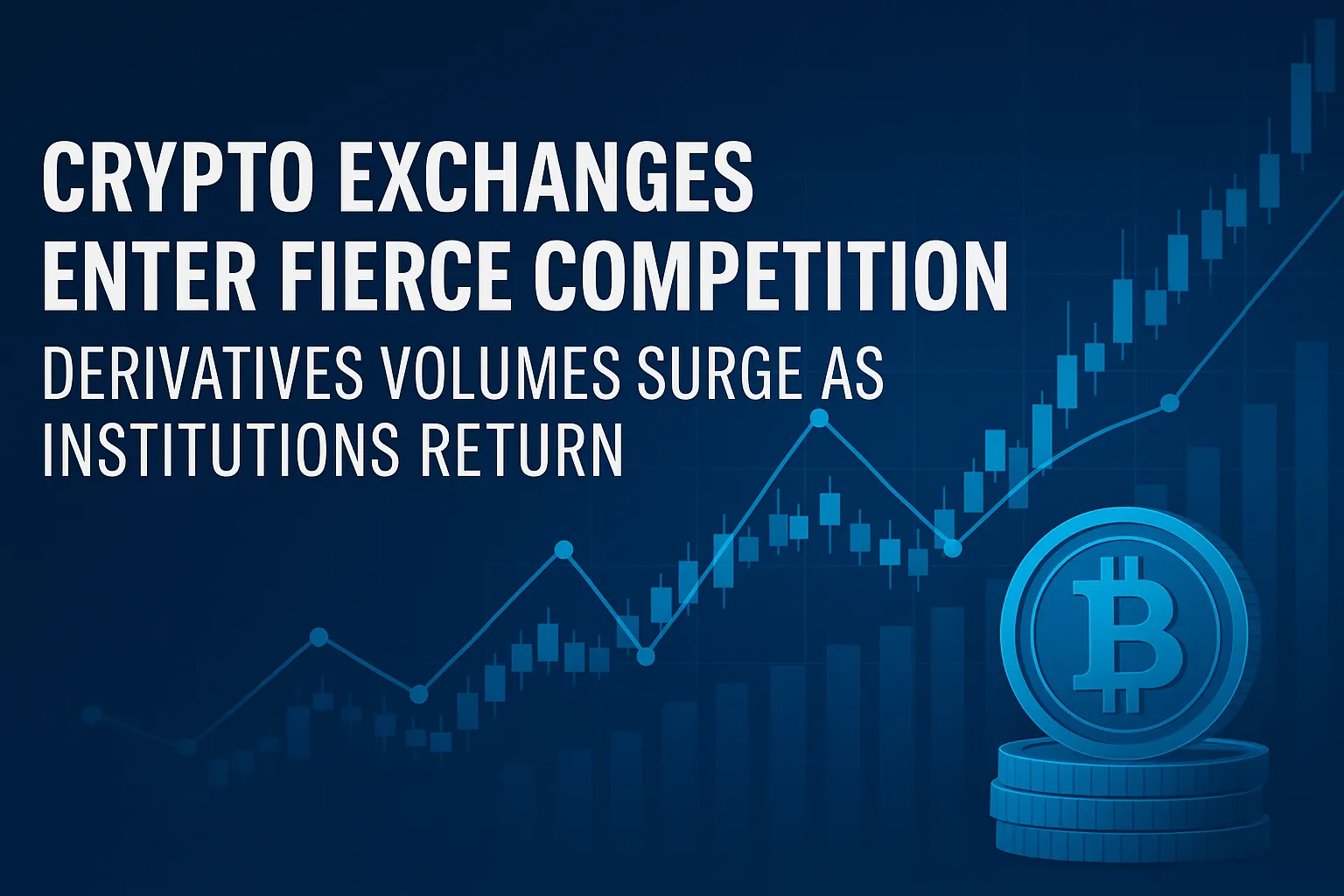
Competition among global cryptocurrency exchanges intensifies | Derivatives trading volume hits a new high for the year as institutions return to the market.
Competition among global cryptocurrency exchanges has entered a new phase: derivatives trading volumes have broken year-to-date records, and institutional funds are becoming more active again. Leading platforms are accelerating their efforts in compliance and innovative products, while smaller exchanges face survival pressures.
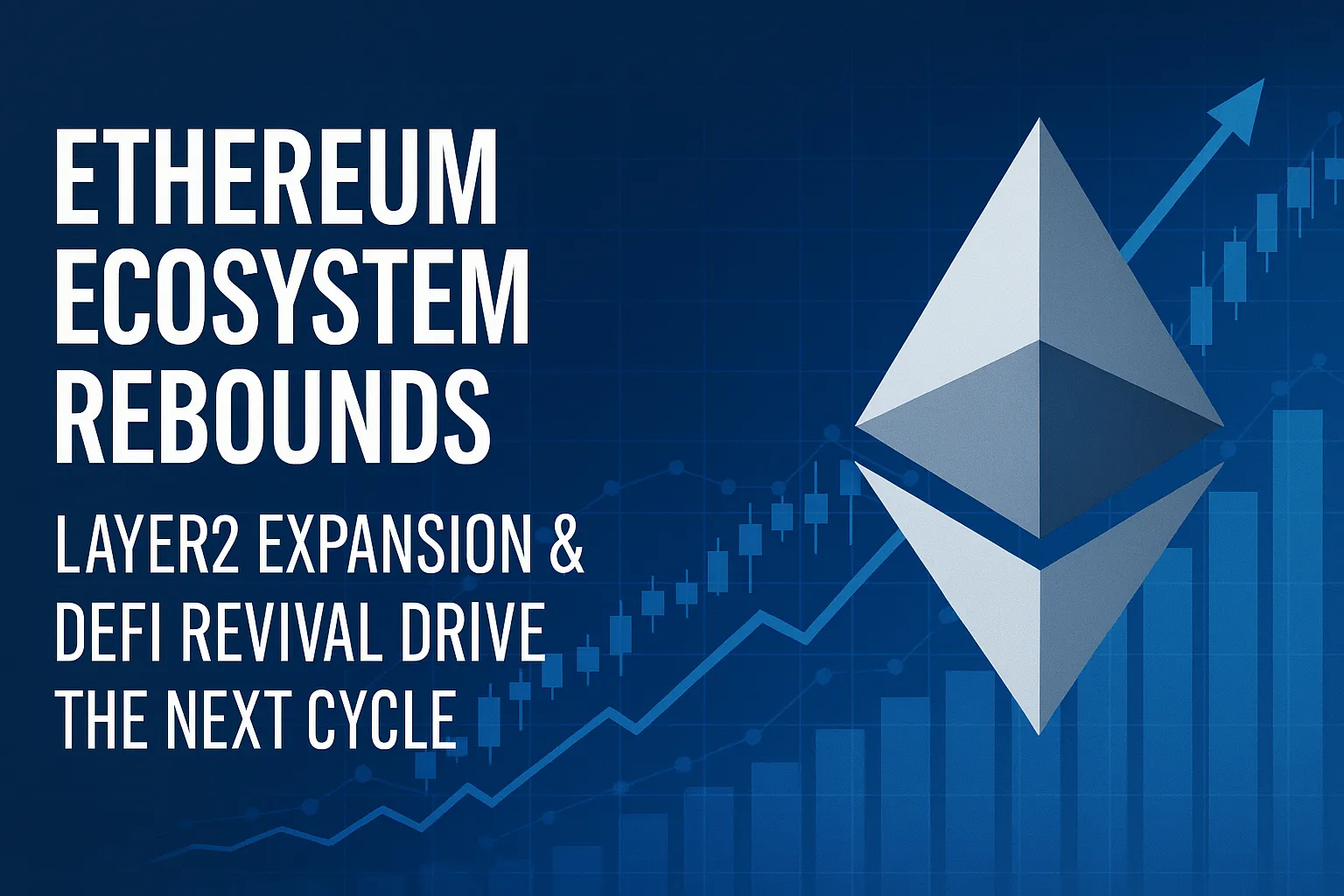
Ethereum ecosystem sees strong recovery | Layer 2 expansion and DeFi resurgence ignite a new cycle
As the market gradually recovers, Ethereum on-chain activity has significantly increased, with total value locked in DeFi rebounding to a yearly high, and Layer 2 networks experiencing a surge in both funding and users. Ethereum is re-establishing its position as the "core infrastructure" of the blockchain ecosystem, becoming a key engine for the new round of digital asset growth.

Post-Bitcoin Halving Hashrate Battle: Mining Companies Plunge into Profitability Trough, AI Hashrate Seizes Energy Resources
The global mining industry is facing a double whammy of declining profits and rising energy costs following the Bitcoin halving. Meanwhile, the rapid growth in AI computing power demand is intensifying competition for electricity, chip, and data center resources, forcing mining companies to seek new paths for "computing power transformation."
View More